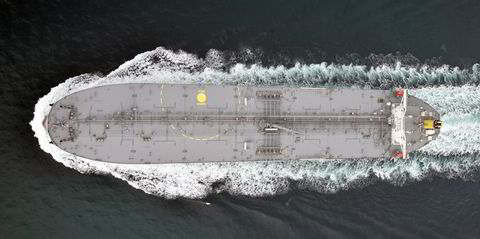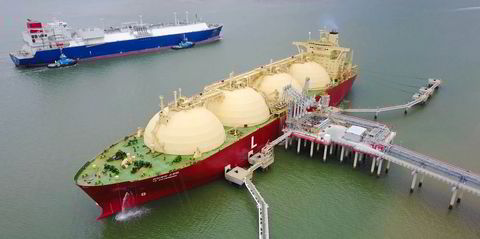Tanker giant Euronav is to trial low-sulphur fuel oil (LSFO) on one of its vessels as the company assesses options for making its vessels compliant with incoming emissions legislation for 2020.
Company chief executive Paddy Rodgers said: “We are testing compliant fuels.
“We have tested and checked some samples, and we will be loading a ship shortly,” he added, without giving further details.
Rodgers confided that Euronav has burnt bunkers with no sulphur in them over the course of the past 10 years, and has encountered no problems. He explains that the refinery that loaded the bunkers had feedstock oil containing zero sulphur.
But he said the new generation of 2020-compliant fuels will be different as they will be a blend and companies are concerned about their stability.
He does not expect the fuel trials — to be checked by Euronav’s engineers and possibly engine manufacturers — to take long.
“We will know pretty quickly if it is going to be an issue,” he said.
Euronav’s fleet burns around one million tonnes of bunkers each year. But Rodgers is concerned that the industry is still not being told how much 2020-compliant fuel will be made available, so companies are unable to estimate the price they will be charged for it.
This week, AP Moller-Maersk announced it has teamed up with Dutch terminal operator Royal Vopak to launch a 2020-compliant fuel bunkering facility in Rotterdam that will supply 20% of the boxship company’s global demand.
Rodgers said Euronav has spent three months doing a thorough review of the options for 2020.
Using LNG as a fuel has stacked up as very expensive and Rodgers has been vocal about his concerns over fitting exhaust-gas emission scrubbers.
He calculates it would cost around $350m to fit scrubbers to Euronav’s 78-ship fleet.
“It is not money you can spend lightly,” he said.
But he admits the company has not ruled them out.
Rodgers said owners need to ask whether a scrubber would function 100% of the time and what the unit’s life expectancy would be. He observed that the design, engineering and maintenance of the pipework associated with the scrubber will be the responsibility of the owner.
He asked whether the fuel oil spread between heavy fuel oil (HFO) and LSFOs will be maintained long enough for companies to get their money back on fitting scrubbers, particularly amid indications from some majors on the possible phasing out of HFO.
Rodgers, like others in the industry, also questions whether putting sulphur into the oceans with a scrubber rather than into the atmosphere is the correct choice to make, both morally and environmentally.





